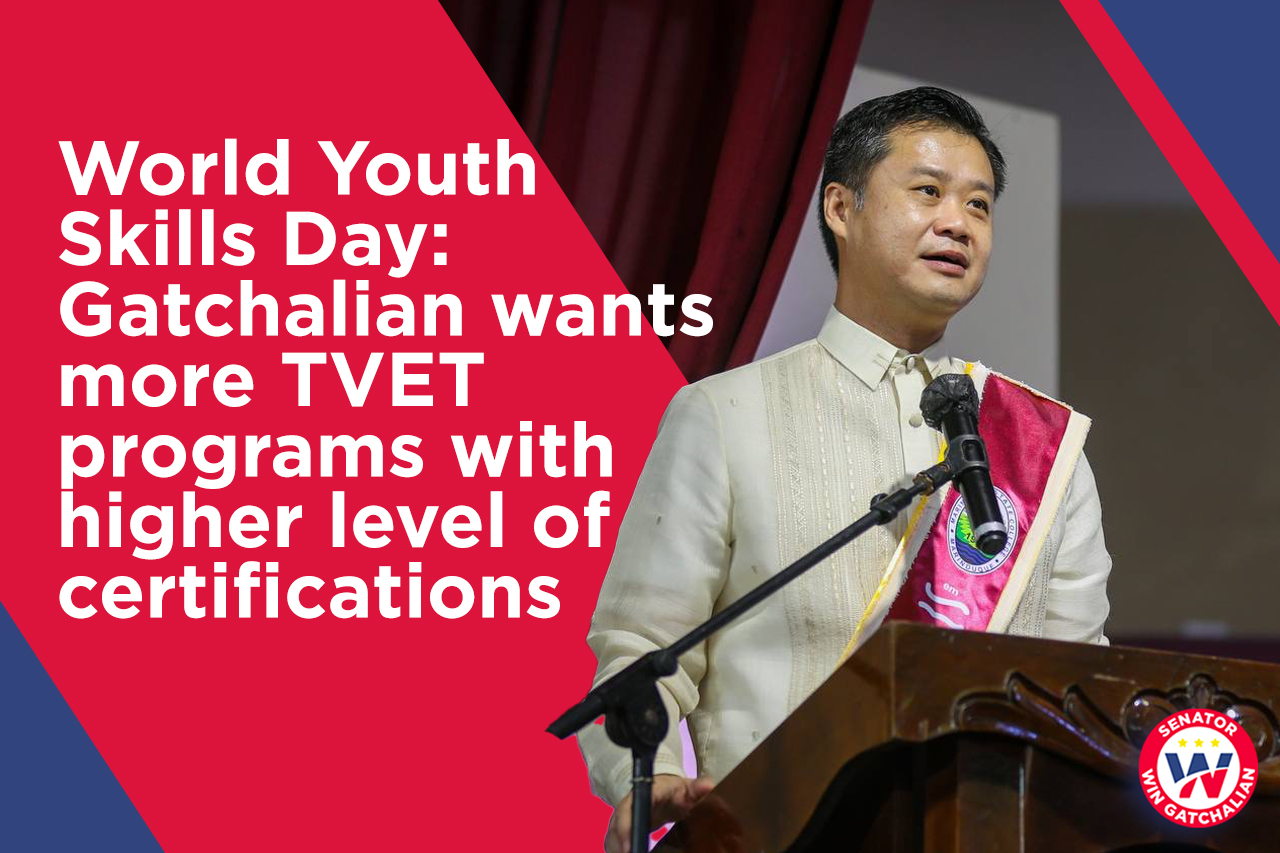Amid the celebration of World Youth Skills Day today, July 15, Senator Win Gatchalian is pushing for more technical and vocational education and training (TVET) programs providing higher level certifications.
Based on data from the Technical Education and Skills Development Authority (TESDA) as of May 2023 and analysis from the senator’s office, less than 1% (0.2%) or 31 of TESDA-accredited TVET programs equip learners with the National Certificate (NC) Level IV and only 3.7% or 548 are TVET diploma programs. NC I (7.3%) and NC II (79%) make up 86.3% of TESDA-accredited TVET programs.
“Most of our TVET trainees are trained with entry-level skills through NC I and NC II. Very few go through NC III, NC IV, and the higher levels which focus on more complex skills that companies are looking for,” said Gatchalian.
Workers with NC Level IV certificates can perform a wide range of complex and non-routine applications. Their work also involves leading, guiding, and organizing others. Work at this level also requires evaluation and analysis of current practices and the development of new criteria and procedures. Diploma programs or NC V also offer tech-voc trainees, graduates, and middle-level workers better chances to qualify for jobs with bigger responsibilities, such as supervisors.
Gatchalian also pressed the need to increase enterprise-based TVET programs. Based on the six-year average of enrollment in TVET programs from 2014 to 2020, only 4% were enrolled in enterprise-based programs, 50% were enrolled in community-based programs, and 46% were enrolled in institution-based programs.
“What we need to increase is the enterprise-based training because it gives TVET students the opportunity to work in the private sector,” Gatchalian added.
In a March 2021 study on TVET in the Philippines, the Asian Development Bank identified work-based learning as a globally recognized best practice to provide students and apprentices with technical knowledge and practical skills.
Gatchalian is also proposing to embed accreditation in the technical-vocational livelihood track of senior high school programs through the Batang Magaling Act (Senate Bill No.2022). The proposed measure seeks the creation of the National and Local Batang Magaling Councils to strengthen the linkages and collaboration among the Department of Education (DepEd), local government units, the academic communities, and industry partners to address the mismatch between the skills of K to 12 graduates and the demands of the labor market.



